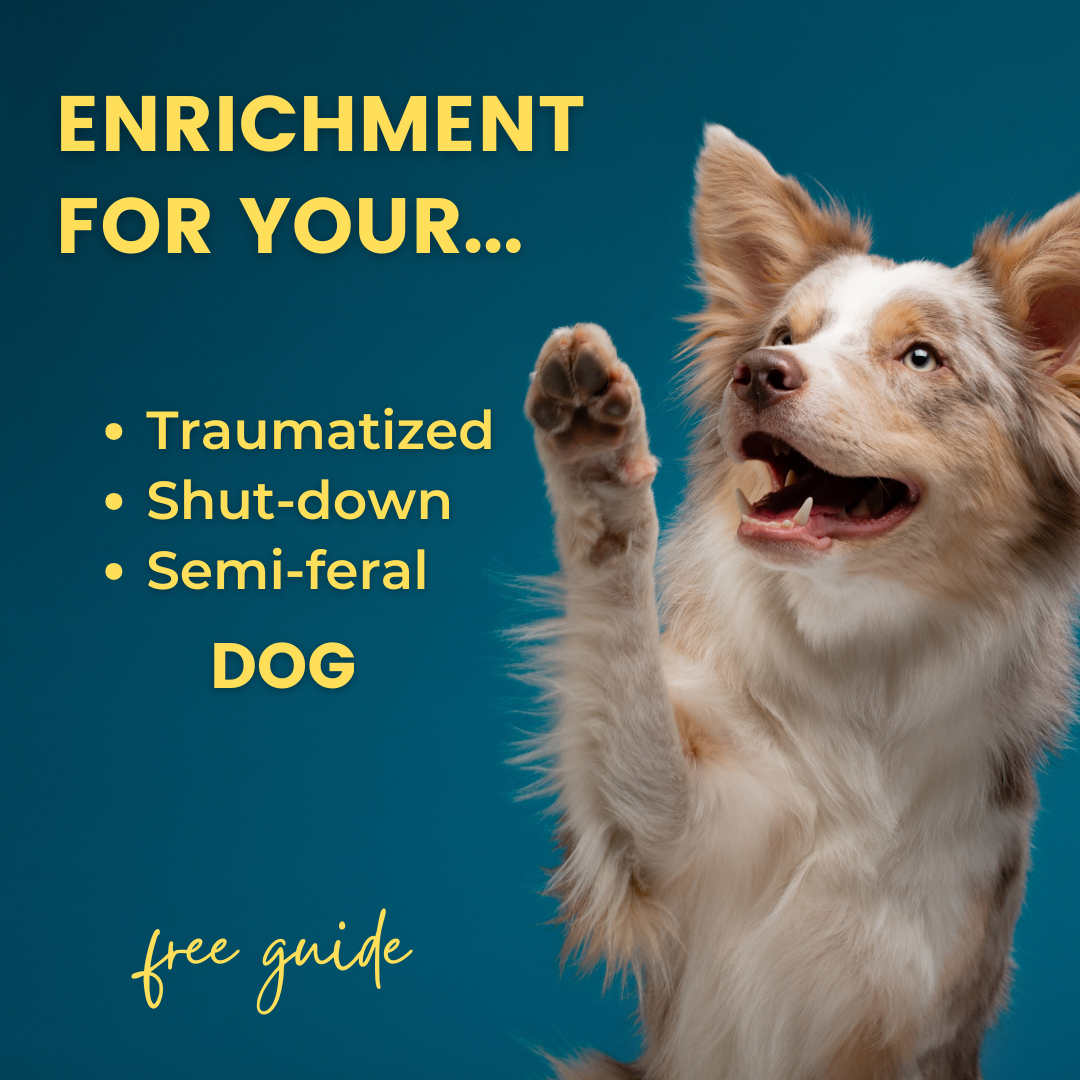Help your dog recover from setbacks
Sep 25, 2024
It is so disheartening when your fearful dog has a significant regression in their anxiety and behavior. It can feel like you've lost all the progress you've made, and you're starting over again. Why does this happen, and how can you help your dog bounce back?
I discuss the reasons for behavioral regressions, and what to do about it (with examples) in the video below. Here are the highlights:
Why do these setbacks happen?
When behavior changes, it is due to some change in the environment. "The environment" includes the physical aspects of your dog's environment, including you and your behavior, and whatever is going on inside your dog. Three common types of environmental changes that can cause setbacks for fearful dogs include:
- One-off scary events. Many dogs are negatively affected by single scary events, like holiday fireworks displays, or a dog attack.
- Ongoing changes to your dog's surroundings. Something like seasonal changes in the heater or air conditioner turning on and off, or a neighbor putting in an ultrasonic bark deterrent in their yard, might mean your dog is being scared repeatedly.
- Changes that happen inside your dog. Physical pain, illness, or any kind of discomfort can contribute to behavioral regressions.
What can you do to help your dog recover?
When you find yourself facing a significant and negative behavior change with your sensitive dog, here's what I recommend in general (in order):
- See your veterinarian. Ask your vet to examine your dog for any potential sources of pain or discomfort. If your dog isn't feeling their best, training will be an uphill battle.
- Identify & avoid or reduce any other potential environmental causes of the setback. If you know what triggered the setback, avoid it or find ways to reduce the frequency and intensity of your dog's exposure to it. This could be as simple as shutting your windows to mute outdoor noises.
- Train, starting where your dog is right now. During a regression, your dog might seem to lose some of the behaviors you've trained. To build those skills back up, restart training in whatever context your dog is able to do the desired behaviors consistently, right now. It might feel like you're starting over, but often, training during recovery from a bad experience is much faster than the initial training.
- Change the picture. You can sometimes speed up your dog's recovery from a bad experience by returning to training in a new location, or varying the training context in some other way.
If this helps you and your dog overcome a setback, I'd love to hear from you! Shoot me an email at info@dogkindtraining.com and tell me about it.



